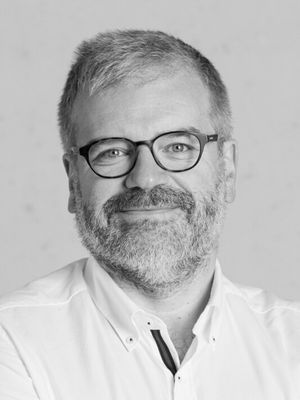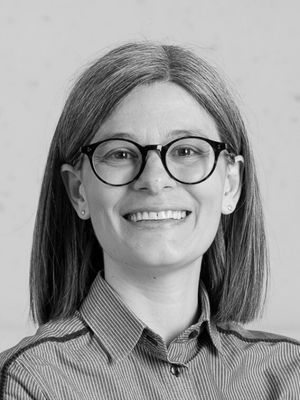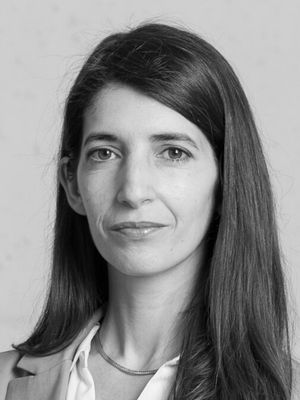
Determinants of neurocognitive function in senior adults: trajectories across time
From an aggregation of multiple population-based team projects, this Project builds on Team achievements, on healthy (cognitive) ageing, across the last decade. The Project’s multidimensional approach (e.g. psychological, social, physiological, interventional, computational) aims to, first, identify and verify common denominators of mental ageing and, secondly, to devise new prototypic interventions to reduce cognitive decline in the ageing population. The Project’s core idea is that somatic and brain ageing are inter-dependent and critical for mental health, and that the temporal dynamics of interactions between (patho)physiological factors, and their adjustments in response to external forces (e.g. stress), determine cognitive and mental health trajectories.
The Project becomes feasible and accelerated due to access to existing cohorts of senior individuals who are multi-dimensionally contrasted and characterized in cross-sectional and longitudinal designs. Briefly, we have been able to investigate aspects such as the effect of clinical (e.g. disease comorbidity, cardiovascular health), biochemical (e.g. immunological phenotype) and lifestyle factors (e.g. nutrition, physical activity) on brain structure and function (namely, cognitive performance), but have also explored aspects such as the impact of events, such as the COVID-19 pandemic, or positive/negative past life events, on psychological status and cognitive function. More so, by understanding our population and its needs, we have been able to, for instance, render available daily activities of physical exercise and the promotion of healthy eating habits, as well as cognitive and recreational-recreational activities, via digital social networks. Multiple methods of data collection, from in-person to telephone- or computer-based approaches, are utilized.
Funding Agency
Fundação da Ciência e Tecnologia (FCT); POCI; Fundação Calouste Gulbenkian; European Commission Horizon2020 Marie Curie-Skłodowska Innovative Training Network; European Commission FP7
Project Reference
“MEDPERSYST – Synaptic networks and Personalized Medicine Approaches to Understand Neurobehavioural Diseases Across the Lifespan” (POCI-01-0145-FEDER-016428); “TEMPO – Better mental health during ageing based on TEMPOral prediction of individual brain ageing trajectories” (Gulbenkian Code P-139977); “PANINI – Physical Activity and Nutrition INfluences In ageing” (Marie Curie GA675003); “Effects of COVID-19 pandemic on psychological status and cognitive function of senior adults: follow-up of an established aging cohort” (Project n.504 RESEARCH4COVID); “GIRO Project – A digital activity platform for seniors in social isolation” (FCT 078_596650495 RESEARCH4COVID);
Project Members


Osborne F.X. Almeida

Ana Coelho

Nadine C. Santos

Teresa Costa Castanho
Main Project Outcomes
S. Queirós, “Right ventricular segmentation in multi-view cardiac MRI using a unified U-net model”, in E. Puyol Antón et al. (eds) Statistical Atlases and Computational Models of the Heart. Multi-Disease, Multi-View, and Multi-Center Right Ventricular Segmentation in Cardiac MRI Challenge. STACOM 2021. Lecture Notes in Computer Science, vol 13131, pp. 287-295, Springer, Cham, 2022.
“Best Paper Award in the M&Ms-2 Challenge”, by M&Ms2 Challenge organizers and the Medical Image Computing and Computer Assisted Intervention (MICCAI) Society.
Main Project Outcomes
Castanho TC, Santos NC, Meleiro-Neves C, Neto S, Moura GR, Santos MA, Cruz AR, Cunha O, Castro Rodrigues A, Rodrigues AJ, Sousa N (2021) Association of positive and negative life events with cognitive performance and psychological status in late life: A cross-sectional study in Northern Portugal. Aging Brain 1 (2021): 100020. doi: 10.1016/j.nbas.2021.100020
Domingos C, Picó-Pérez M, Magalhães R, Moreira M, Sousa N, Pêgo JM, Santos NC (2021) Free-living physical activity measured with a wearable device is associated with larger hippocampus volume and greater functional connectivity in healthy older adults: an observational, cross-sectional study in Northern Portugal. Front. Aging Neurosci. 13: 729060. doi: 10.3389/fnagi.2021.729060
Serre-Miranda C, Roque S, Santos NC, Costa PS, Sousa N, Palha JA, Correia-Neves M (2020) Cognition is associated with peripheral immune molecules in healthy older adults: a cross-sectional study. Frontiers in Immunology 11:2045. doi: 10.3389/fimmu.2020.02045
Rodrigues B, Coelho A, Portugal-Nunes C, Magalhães R, Moreira P, Castanho TC, Amorim L, Marques P, Soares JM, Sousa N, Santos NC (2020) Higher adherence to the Mediterranean diet is associated with preserved white matter integrity and altered structural connectivity. Frontiers in Neuroscience 14:786. doi: 10.3389/fnins.2020.00786
Amorim L, Magalhães R, Coelho A, Moreira PS, Portugal-Nunes C, Castanho TC, Marques P, Sousa N, Santos NC (2018) Poor sleep quality associates with decreased functional and structural brain connectivity in normative aging: a MRI multimodal approach. Frontiers in Aging Neuroscience 10:375. doi: 10.3389/fnagi.2018.00375
Esteves M, Moreira P, Marques P, Castanho T, Magalhães R, Amorim L, Portugal-Nunes C, Soares JM, Coelho A, Almeida A, Santos NC, Sousa N, Leite-Almeida H (2018). Asymmetrical subcortical plasticity entails cognitive progression in older individuals. Aging Cell e12857. doi:10.1111/acel.12857
Castanho TC, Amorim L, Moreira PS, J Mariz, Silva AM, JA Palha, Sousa N, Santos NC (2016) Assessing cognitive function in older adults using a videoconference approach. EBioMedicine pii: S2352-3964(16):30350-4. doi: 10.1016/j.ebiom.2016.08.001
Marques PC, Moreira PS, Magalhães R, Costa P, Santos NC, Zihl J, Soares JM, Sousa N (2016) The functional connectome of cognitive reserve. Human Brain Mapping 37: 3310-22. doi: 10.1002/hbm.23242
Soares JM, Marques P, Magalhães R, Santos NC, Sousa N (2016) The association between stress and mood across the adult lifespan on default mode network. Brain Structure and Function 222(1):101-112. doi: 10.1007/s00429-016-1203-3
10. GIRO – Digital Plataform with cognitive, physical and general activities for seniors – YouTube: https://www.youtube.com/channel/UCubP8eXx7cCbZCfQ9yZNnnw



Contact us
Phone: +351 253 604 967
Fax: +351 253 604 809
Email: icvs.sec@med.uminho.pt
Address
Life and Health Sciences
Research Institute (ICVS)
School of Medicine,
University of Minho,
Campus de Gualtar
4710-057 Braga
Portugal

Copyright ©2022 ICVS. All Rights Reserved



Copyright ©2022 ICVS. All Rights Reserved
Address
Life and Health Sciences
Research Institute (ICVS)
School of Medicine,
University of Minho,
Campus de Gualtar
4710-057 Braga
Portugal



Copyright ©2022 ICVS. All Rights Reserved
Address
Life and Health Sciences
Research Institute (ICVS)
School of Medicine,
University of Minho,
Campus de Gualtar
4710-057 Braga
Portugal

